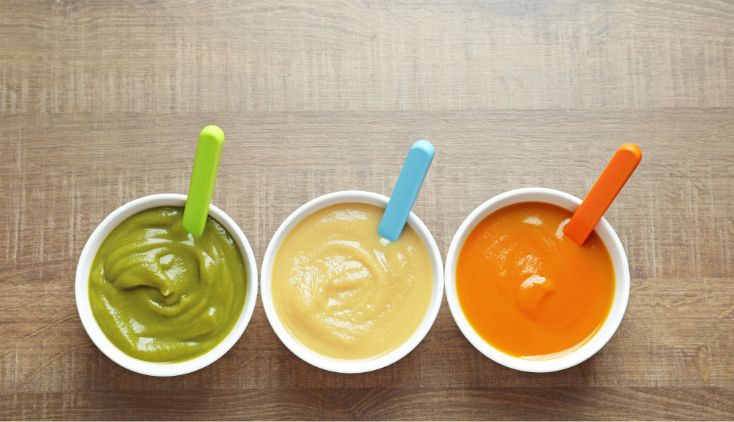The Best and Worst Foods for Your Baby
When it comes to feeding babies, every bite counts. The right foods provide essential nutrients that support rapid growth, brain development and strong immunity. But some foods can be difficult to digest, lack the right nutrition or even pose safety risks. Below is a guide to the best and worst foods for your baby.
The Best Foods for Babies
1. HiPP Baby Formula
HiPP is a trusted organic formula designed to mimic the benefits of breast milk. It contains essential vitamins, minerals, probiotics and prebiotics that support digestion and immunity. Unlike many commercial formulas, HiPP avoids unnecessary additives, artificial sweeteners and genetically modified ingredients, making it gentle on tiny tummies.
2. Puréed Vegetables
Vegetables provide vitamins like A, C and K, plus minerals and fiber. Carrots and sweet potatoes, for example, are rich in beta-carotene, which supports healthy vision. Peas are packed with protein and iron, helping with muscle and blood development.
3. Mashed Fruits
Fruits offer natural sweetness and are rich in vitamins and antioxidants. Bananas are a great source of potassium and easy to digest. Apples and pears, when cooked and mashed, provide gentle fiber for healthy digestion.
4. Iron-Fortified Baby Cereal
Single-grain cereals like oatmeal or rice cereal are often recommended as a first food. Fortified with iron, they help prevent anemia, a common concern in babies after six months when natural iron stores begin to decline.
5. Full-Fat Yogurt (Unsweetened)
Yogurt provides calcium, protein and probiotics that support bone growth and gut health. Always choose plain, full-fat varieties without added sugar to meet babies’ nutritional needs.
The Worst Foods for Babies
1. Honey
Babies under 12 months should never consume honey because it can contain spores that cause infant botulism, a dangerous illness.
2. Whole Nuts and Popcorn
Small snacks like nuts and popcorn pose serious choking hazards for babies and toddlers. Nut butters (in very thin layers) can be introduced instead, but whole nuts should wait until later childhood.
3. Cow’s Milk
Before 12 months, cow’s milk can stress the kidneys, interfere with iron absorption and does not provide the balanced nutrients babies need. It’s safe in small amounts when used in cooking, but not as a main drink until after the first birthday.
4. Sugary Foods and Juices
Excess sugar contributes to tooth decay, poor nutrition and unhealthy weight gain. Babies don’t need added sugar. Their taste buds are still developing, and natural foods are plenty sweet.
5. High-Salt Foods
Processed foods like chips, cured meats or canned soups contain too much sodium for developing kidneys. Babies only need very small amounts of salt, which they naturally get from whole foods.
Balancing a Healthy Baby Diet
A balanced diet for babies means providing a variety of nutrient-dense foods across food groups:
- Formula or breast milk remains the primary source of nutrition until around 12 months.
- Introduce vegetables and fruits early, offering different colors and flavors to build healthy preferences.
- Add iron-rich foods like fortified cereals, beans or puréed meats around 6 months.
- Include healthy fats (like avocado or full-fat yogurt) to support brain development.
- Always introduce one new food at a time, watching for allergies or sensitivities.
The key is variety, gentle introduction and patience. Babies often need to try a food many times before accepting it.
Keep reading to learn about gluten-free snacks for kids.
